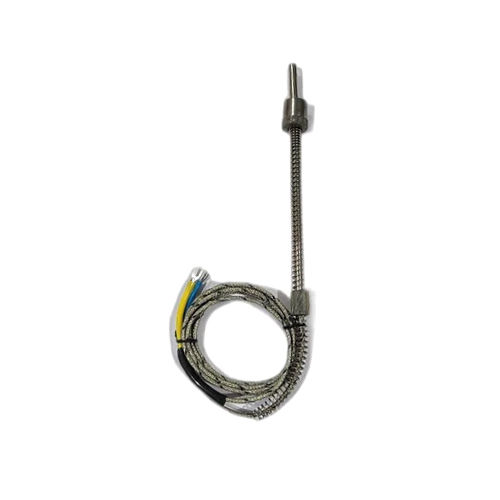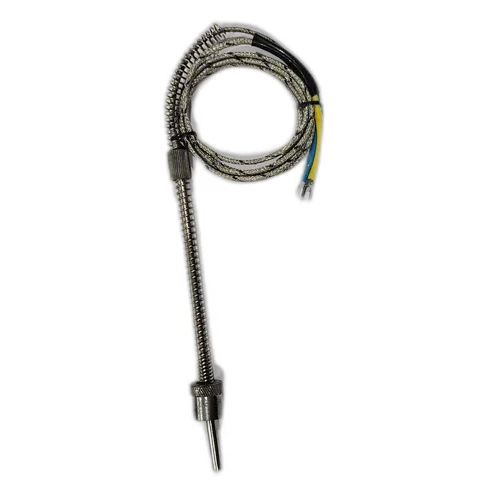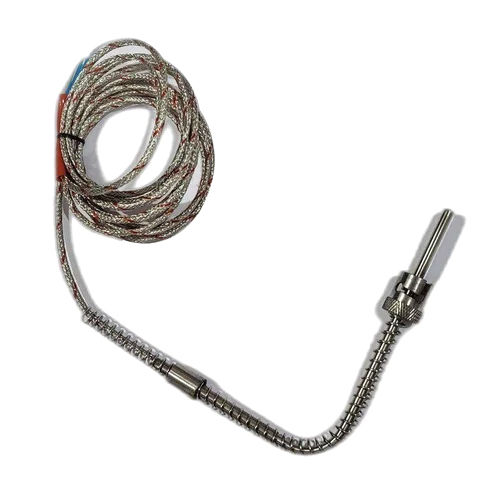
210 V J Type Thermocouple Wire
Product Details:
- Voltage 210 Volt (v)
- Product Type J Type Thermocouple Wire
- Color Silver
- Material Stainless Steel
- Type J Type
- Temperature Range 120 Celsius (oC)
- Wire Length 145 Millimeter (mm)
- Click to View more
210 V J Type Thermocouple Wire Price And Quantity
- 100 Piece
- 380 INR/Piece
210 V J Type Thermocouple Wire Product Specifications
- 210 Volt (v)
- J Type Thermocouple Wire
- J Type
- 145 Millimeter (mm)
- 120 Celsius (oC)
- Silver
- Stainless Steel
210 V J Type Thermocouple Wire Trade Information
- Cash in Advance (CID)
- 100000 Piece Per Month
- 7 Days
- All India
Product Description
When someone mentions "J type thermocouple wire," they're referring to the particular kind of wire that goes into J type thermocouples, which are frequently used for temperature measurement in a variety of industrial applications.
Here are some essential qualities and traits of J type thermocouple wire made for 210V power supplies:
1. J type thermocouple wire is made exclusively for J type thermocouples, therefore it is compatible with them. J type thermocouples have an iron positive leg and a constantan (copper-nickel alloy) negative leg.
2. J-type thermocouples are appropriate for monitoring temperatures between -210 deg C and 760 deg C (-346 deg F and 1400 deg F). J type thermocouples' wire is made to survive this temperature range and offer precise temperature readings within these restrictions.
3. Temperature Range: The temperature range that a J type thermocouple wire is intended to withstand often determines its voltage rating. The 210V you cite in your inquiry probably refers to the power supply voltage rather than the voltage produced by the thermocouple, despite the fact that J type thermocouples do give a voltage signal.
4. J type thermocouple wire provides decent accuracy and stability in temperature measurements. Precision temperature measurement is made possible by J type thermocouples, which produce a voltage signal based on the temperature differential between the two junctions.
5. Flexibility and Usability: J type thermocouple wire is adaptable and simple to use. It is simple to cut, strip, and attach to extension wires or thermocouple connectors. Due to its versatility, it may be easily routed and installed in a variety of applications.
6. Hard Environment Resistance: J type thermocouple wire is resistant to chemicals, dampness, and hard conditions. It ensures accurate temperature measurements under difficult circumstances by withstanding exposure to corrosive substances, high temperatures, and mechanical stress.
7. Applications include HVAC, food processing, automotive, and scientific research. J type thermocouples and the accompanying wires are widely employed in these fields. They are appropriate for applications that call for temperature monitoring and control, like temperature profiling in industrial processes, furnaces, and ovens.
To achieve precise and dependable temperature measurements while utilising J type thermocouple wire, it is crucial to take into account variables including temperature range, thermocouple type, accuracy specifications, and environmental circumstances. The performance and lifetime of the thermocouple system are maintained by following suitable installation procedures and maintenance recommendations.
Other Products in 'Thermocouple Wire' category
GST : 29AAYPJ3561B2ZF



 Send Inquiry
Send Inquiry Send SMS
Send SMS